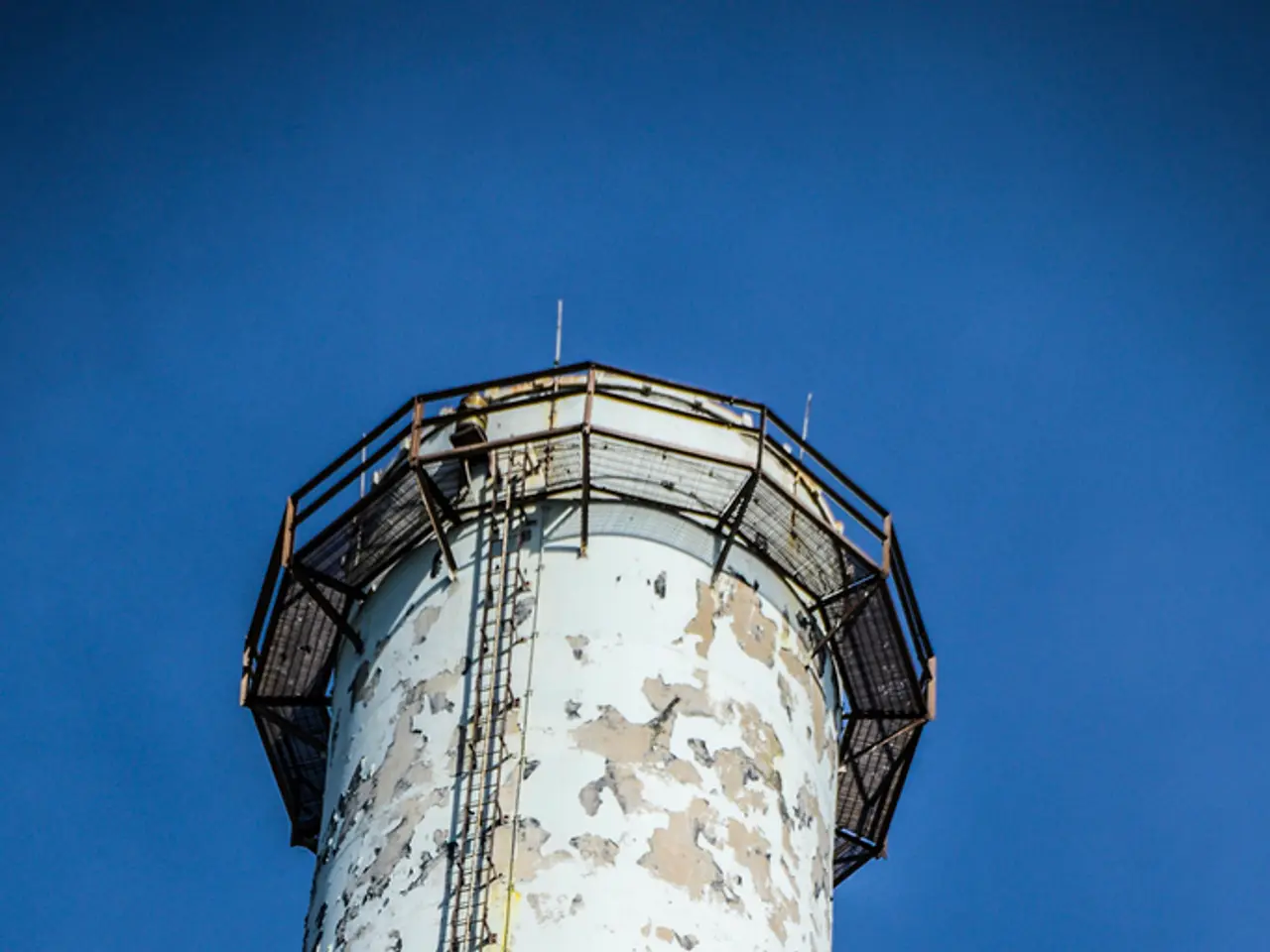Adaptability, not expansion, is the hurdle: examining how logistics industries respond to market fluctuations
In the ever-evolving landscape of global logistics, TLC UralsTransHolding is making significant strides to overcome challenges and capitalise on emerging trends. The company's strategic approach is evident in its expanding partnerships, particularly with flexible Chinese contractors, and its commitment to multimodal solutions.
Currently, the logistics industry faces a host of complex issues, including economic uncertainty, regulatory complications, supply chain disruptions, and technology adoption gaps. Economic instability, driven by factors such as inflation, volatile currency fluctuations, and cautious global trade, necessitates increased adaptability from logistics providers. Stricter customs regulations, evolving trade policies, and increased enforcement of tariffs cause delays and increase compliance costs, complicating cross-border logistics operations.
Ongoing pandemic-related factory closures and geopolitical tensions continue to disrupt trade routes, causing inventory shortages and production delays globally. Freight market volatility is another challenge, with ocean freight, airfreight, and ground transportation each facing their unique set of difficulties.
However, the future of logistics is not without hope. The era of big data is upon us, with modern technologies allowing for the collection and analysis of vast amounts of information, leading to improved decision-making and operational efficiency. E-commerce's rapid expansion fuels demand for faster, more efficient last-mile delivery and warehousing solutions, boosting airfreight and specialized delivery services.
TLC UralsTransHolding is at the forefront of this digital transformation, having implemented GPS monitoring, client notifications, a TMS system with route planning, and EDO (Electronic Document Exchange). The company also prioritises balanced development, focusing on improving key areas such as FMCG, pharmaceuticals, and automotive parts segments.
The company's commitment to innovation is evident in its exploration of AI tools for route risk assessment and predicting disruptions. However, the use of autonomous transport remains a topic of discussion, requiring a well-developed infrastructure for widespread adoption.
Despite the growing reliance on technology, the human factor remains crucial in logistics. Experience, adaptability, and common sense are key, as demonstrated by TLC UralsTransHolding's successful handling of complex transportation projects, such as transporting a carousel lathe to Europe with a diameter of 7200 mm.
In response to the challenges posed by payment delays, the company has innovated by organising special mobile trains on the railway and dividing cargo in half for certain projects. This approach, though requiring serious preparation, including detailed engineering calculations, permit documentation, and coordination with multiple departments and services, demonstrates TLC UralsTransHolding's commitment to finding solutions that benefit both itself and its partners.
The company's strategic use of the Amur international transport corridor, Eastern ports, and collaborations with reliable agents in Southeast Asia further position it as a leader in the logistics industry. The growing interest in comprehensive "turnkey" transportation, including consolidated LCL containers, also presents an opportunity for TLC UralsTransHolding to expand its services and better meet the needs of small and medium-sized businesses.
In summary, TLC UralsTransHolding is navigating a complex mix of economic, regulatory, and operational challenges while increasingly leveraging digital transformation, sustainability efforts, and e-commerce growth to drive future growth and resilience. The company's success is a testament to its adaptability, innovation, and commitment to delivering exceptional service in the face of adversity.
[1] Global Trade Review. (2021). Tariffs threaten US-Canada logistics. Retrieved from https://www.gtreview.com/news/tariffs-threaten-us-canada-logistics/ [2] Supply Chain Dive. (2021). Pandemic-related factory closures continue to disrupt global supply chains. Retrieved from https://www.supplychaindive.com/news/pandemic-related-factory-closures-continue-to-disrupt-global-supply-chains/620935/ [3] FreightWaves. (2021). The logistics industry in 2025: Challenges and opportunities. Retrieved from https://www.freightwaves.com/news/the-logistics-industry-in-2025-challenges-and-opportunities [4] Forbes. (2021). The future of logistics: How AI and automation are shaping the industry. Retrieved from https://www.forbes.com/sites/forbestechcouncil/2021/03/10/the-future-of-logistics-how-ai-and-automation-are-shaping-the-industry/?sh=71d9599f70d1 [5] McKinsey & Company. (2020). The logistics industry in 2030: Navigating the future. Retrieved from https://www.mckinsey.com/industries/logistics/our-insights/the-logistics-industry-in-2030-navigating-the-future
In the realm of logistics and business, TLC UralsTransHolding is not only addressing the technology adoption gaps but also diversifying its services to capitalize on the growing demand for efficient last-mile delivery and warehousing solutions, aligning with the expansion of e-commerce. Recognizing the significance of multimodal solutions in the ever-evolving landscape, TLC UralsTransHolding is leveraging digital technology to enhance its finance and operational efficiency, thereby ensuring sustained growth and resilience in the face of economic uncertainty and market volatility.




